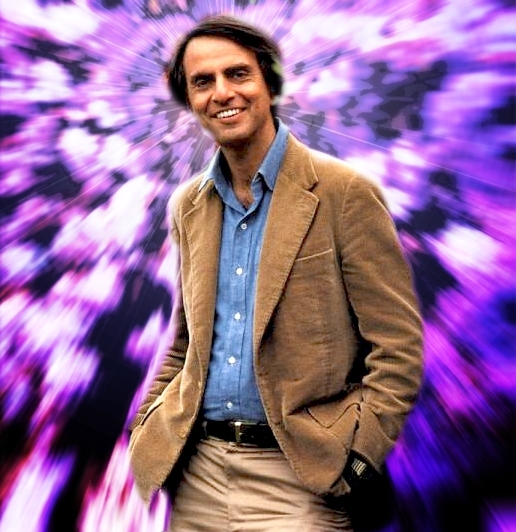"Thank you, Carl Sagan" is an in-joke I and my friends use which requires a bit of explanation. I've been a member, on and off, of
the Planetary Society since ... oh, heck, I don't know, since I lived in Greenville, South Carolina ... which makes it at least 25 years, a credible guess since the Planetary Society was
founded by Carl Sagan in 1980.
Back in the 80's, I was first coming into my own as a space enthusiast - getting a subscription to
Scientific American, joining the
Science Fiction Book Club, and of course joining the Planetary Society.
A few years after I joined, I opened my mailbox in Greenville and found a renewal letter for the Planetary Society. That was great - I had planned to renew - but when I pulled out the envelope and prepared to write my check, I found the following (roughly reconstructed from memory):
Thank you, Carl Sagan for the opportunity to renew my subscription at the Planetary Society! Yes, I'd like to sign up for another year of the Planetary Report and to contribute to all the Planetary Society's great causes!
I was flabbergasted. This was my first barely-adult encounter with marketing speak and I couldn't imagine the hubris of
someone asking me for money writing the response letter in such a way that it looked like I was
thanking them.
Even though I was young and naive, on some level I knew
Carl Sagan hadn't written that letter, and even if he had seen it he would have approved it without a second thought (I mean, come on, the Society IS providing a valuable service). But it was funny enough at the time to show it to all of my friends, most of whom were also big fans of Cosmos.
So every time Carl Sagan's name was mentioned, it was immediately followed by a chorus of: "Thank You, Carl Sagan!" I still hear those words every time I hear his name ... but the meaning has changed:
Cosmos. Contact. Intelligent Life In the Universe (with Shklovskii). The Pioneer Plaque. The Pale Blue Dot. The Planetary Society itself. And A Still More Glorious Dawn Awaits (with Stephen Hawking and Colorpulse).
Thank you, Carl Sagan, indeed...
-the Centaur

